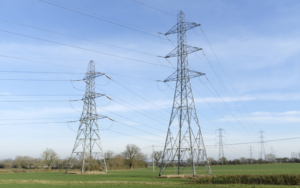
Last winter 1.6 million households benefited from money off their energy bills thanks to the Demand Flexibility Service (DFS). The scheme, which was available via a number of UK energy suppliers, allowed customers to reduce their energy usage during a set timeframe to relieve stress on the energy system at peak times.
Participating customers who managed to successfully reduce energy usage during the timeframe specified were rewarded with money off their energy bill. The amount of money rewarded varied depending on the energy supplier and the amount of energy saved.
Energy regulator Ofgem has approved the latest Demand Flexibility Service terms signalling the return of the scheme this winter, giving households another opportunity to save money on their energy bills. The service runs from November 2023 to March 2024.
In this article, we look at how the Demand Flexibility Service works, who is eligible to take part in the Demand Flexibility Service and additional ways in which you can save on your energy bills.
How does the Demand Flexibility Service work?
The Demand Flexibility Service was launched by The National Grid in 2022 with the aim of reducing the demand on the energy circuit during peak times of usage. The scheme was launched after a number of successful trials and delivered an energy reduction of over 3,300MWh. The scheme works by encouraging households to reduce their energy consumption during peak times. DFS tests will last for 1 hour and live events are likely to last up to 4 hours. The tests and live events are most likely to take place on weekday evenings when electricity demand is often at its highest.
The amount of money you save if you participate in the scheme will vary depending on your individual energy supplier and how much energy you save. However, registered suppliers will be paid a minimum of £3KWh for the first six tests which can then be passed onto customers as either points, prizes or cash. At present, more than 30 domestic energy providers are registered to take part in the scheme and the list is likely to grow throughout the winter period as more energy providers sign up to the scheme.
When the DFS scheme was first announced, some safety concerns were raised, especially as consumers could be encouraged to use electrical appliances overnight. Electrical Safety First issued the following guidance to help consumers to stay safe when using electrical appliances.
(Click to enlarge)
Who is eligible for the Demand Flexibility Service?
Participating energy suppliers are contacting eligible households to invite them to participate in the DFS scheme. To be eligible you need to be registered with a participating energy supplier and have a smart meter that can provide meter readings every half an hour. Energy suppliers registered for the Demand Flexibility Service can be found in the below comparison table.
What domestic energy providers are part of the Demand Flexibility Service?
The following table shows the domestic energy suppliers registered to take part in the Demand Flexibility Service. An up-to-date list of providers can be found here as well as a list of industrial and commercial suppliers taking part in the scheme.
| Provider |
|---|
| Axle Energy Ltd |
| British Gas |
| CarbonLaces Solutions Ltd |
| Chameleon Technology (as Ivie) |
| Easee UK Ltd (via Axle Energy Ltd) |
| Ecotricity Group Ltd (via SMS - Solo Energy Ltd) |
| EDF |
| E.ON Next |
| Equiwatt |
| Foxglove Energy Supply Ltd T/A Outfox The Market (via SMS – Solo Energy Ltd) |
| GIvEnergy Software (via Axle Energy Ltd) |
| 100 Green (via SMS – Solo Energy Ltd) |
| Good Energy (via SMS – Solo Energy Ltd) |
| Hildebrand Technology Ltd |
| Hugo Energy App (via SMS - Solo Energy Ltd) |
| Levelise Limited |
| Loop.homes (via SMS - Solo Energy Ltd) |
| Octopus Energy |
| MakeMyHouseGreen (via SMS – Solo Energy Ltd) |
| Ohme (via Axle Energy Ltd) |
| OVO Energy |
| Passiv Uk (via SMS – Solo Energy Ltd) |
| Perse Technology Ltd |
| Power Rewards App (via Orange Power Ltd) |
| Rebel Energy Supply Ltd (via SMS – Solo Energy Ltd) |
| Scottish Power (via Equiwatt) |
| SMS (Solo Energy Ltd) |
| So Energy (via SMS – Solo Energy Ltd) |
| Shell Energy Retail (Via SMS - Solo Energy Ltd) |
| SolarEdge Technologies (via SMS – Solo Energy Ltd) |
| Uswitch Ltd (via Hildebrand) |
| Utilita Energy Ltd |
Source: National Grid ESO
How to save money on your energy bills
If you do not have a smart meter, or your provider is not yet participating in the Demand Flexibility Service, there are a number of ways you can still save money on your energy bills. Find out more in our articles, 'How to save money on your energy bills', 'How much electricity am I using?' and 'What is the cheapest way to cook?'






